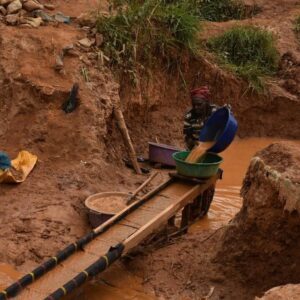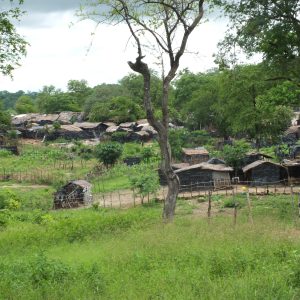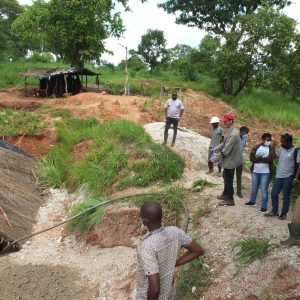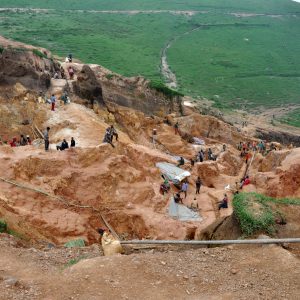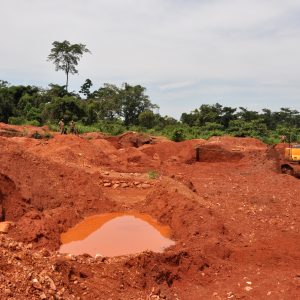As part of our Responsible Mining services, we advise and assist publicly listed and private mining companies to manage risk and drive sustainable development through their relationships with their business partners, affected rightsholders (including workers, Indigenous Peoples, local communities, etc.), and regulators. As a basis for this advice, we use international norms and industry standards in environmental and human rights due diligence for responsible mining, sourcing and investment, such as (but not limited to) the IFC Performance Standards, the UN Guiding Principles on Business and Human Rights, the OECD Guidelines for Multinational Enterprises on Responsible Business Conduct, and the Voluntary Principles on Security & Human Rights. We work across a range of minerals and geographies.
We have four specialities:
- Educating multidisciplinary teams to evolve approaches to better manage risk, strategically.
- Understanding and developing strategies to manage community relations & artisanal and small-scale mining (ASM) well to build trust and the licence to operate.
- Strengthening and leveraging multistakeholder collaborations with investors, mineral offtakers, downstream companies and in-country mining peers to tackle joint issues and optimise sustainable impact.
- Instituting responsible sourcing systems that build supply chain resilience and drive sustainable development.
Our clients include a range of junior, mid-cap and major mining companies, as well as industry associations, standard setters, international donors, OEMs and major brands, who either wish to drive sustainable development through responsible mining or protect or grow value by handling their risks and relationships better.
We have supported mining companies in the following sectors and jurisdictions but can work flexibly across mineral categories and jurisdictions:
- Gold and diamonds in francophone and anglophone West Africa, Eastern DRC and Ethiopia
- Copper-cobalt in the DRC Copperbelt
- Rubies in Mozambique
- Platinum in South Africa.
Our mining clients typically engage us to:
- Better secure the social licence to operate
- Provide specialist services within ESIAs & Resettlement Action Plans
- Help companies decide what action to take to responsibly deal with ASM crises such as where human rights violations have occurred
- Support adaptation to market or investor requirements
- Support reporting to stakeholders
- Design and implement multistakeholder collaborations to address joint challenges / opportunities, for example to reduce risk salience or improve coordination within a territory
Types of support we provide to clients in this service area include:
- Strategy, policies and procedures
- Capacity building and training
- Stakeholder mapping, analysis & engagement
- Risk & impact assessment
- Addressing root causes to lower risk salience and drive community development
- Tracking effectiveness and audit preparedness
- Transparency & disclosure
- Access to remedy
Selected examples of our engagements with mining companies and those connected to mining companies
Nearly all of our work for industrial miners is confidential, so we are not able to publicise case studies. Below, you can find some related case studies that we have been able to go public on.
Strategy, policies and procedures
- Analysis and recommendations of how to strengthen (enhanced) policies, procedures and culture to more effectively manage environmental and human rights risks generally
- Developing ASM policies, strategies and management plans at HQ or site level, including standard operating procedures and systems for emergency preparedness, tracking effectiveness, reporting & corporate communications, issue governance, etc.
- Establishing territorial, cross-departmental and intra-group ASM governance structures
- Developing product stewardship systems, including chain of custody policy and procedures and strategic assessment of digitisation (e.g. blockchain, product stewardship) solutions
Capacity building and training
- Human rights training and how to take a human rights based approach to controlling risk
- ASM management training, including security-sensitive approaches to ASM
Assessment and prioritisation of risks and impacts
- Situational analyses, baselines, household surveys, perception surveys and rapid strategic assessment for ESIAs, RAPs, strategic planning, building trust, and securing or recovering the social and legal licences to operate | Example: ASM Baseline in Central African Republic
- Due diligence on ESG risks associated with the local political economy, particularly in relation to ASM | Example: Gemfields in Mozambique
Stakeholder mapping, analysis & engagement
- Issue-specific stakeholder mapping adjusted to strategic purpose.
- Design & implementation of inclusive community, government & competitor engagement to identify & address salient issues, and to support joint solutioneering | Example: How government engagement and capacity building can help foster the formalisation and development of the ASM sector in Mozambique - Levin Sources
- ASM vested interests analysis to risk manage proposed interventions | Example: The Gold & Illicit Financial Flows Project
- Downstream and investee engagement, including advising on and participating in engagement conversations with investees regarding their human rights and environmental risk management
- Strategic communications to support change processes
- Crisis communications to respond to emergencies as they are arising (where we are already retained to a client)
Addressing root causes to reduce risk salience and drive community development
- Risk mitigation planning and implementation to support avoidance and minimisation as part of strategic planning and SOPs, and to respond to issues arising. | Example: Environmental Management in jade mining complexes in Myanmar
- Design and implement multistakeholder collaborations to address joint challenges / opportunities, for example to reduce risk salience or improve coordination within a territory ASM professionalisation & development programmes, working in close collaboration with local & international partners
- ASM professionalisation & development programmes, working in close collaboration with local & international partners | Example: Cooperative support in Mozambique
Tracking effectiveness and audit preparedness for trade facilitation
- Supporting suppliers of smelters, refiners and commodities’ traders to become audit-ready for industry standards and to assess the impacts of collaborative work. | Examples: New Bugurama Mine in Rwanda and Thaisarco
- Designing issue-specific assurance and reporting frameworks for market advantage | Example: Metalkol’s Clean Cobalt Framework
- Facilitating corrective action planning and implementation relative either to audit findings or to issues arising.
Access to remedy
- Co-development of information and communication material to explain and win internal (including C-Suite level) and external support of and use for a remedy mechanism for people negatively affected by a financial institution’s client companies.
- Advisory on access to remedy for affected ASM rightsholders, including designing plans for restoration and compensation.
Training procurement teams on child and forced labour
To support compliance with the Canadian Fighting Against Forced Labour and Child Labour in Supply Chains Act, Levin Sources carried out an online training series for procurement teams operating in Asia, Africa, and North America for a Canadian mining company. The training focused on what child and forced labour are, how they can appear in products and services procured for a mining operation, and actions businesses are expected to take to prevent and mitigate potential occurrences of child and forced labour in their supply chains.


